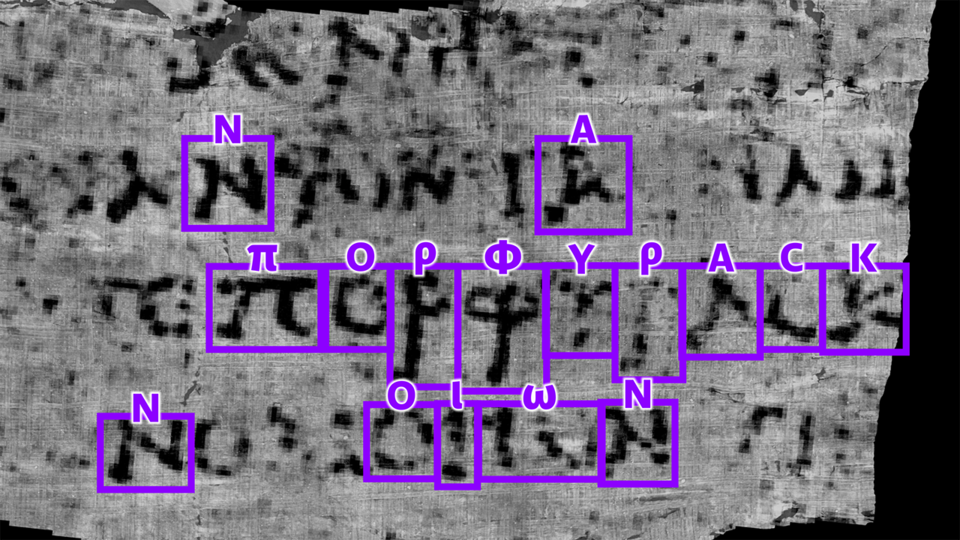
A feat nearly 2,000 years in the making has earned Husker student Luke Farritor a cavalcade of media coverage around the globe.
Farritor, a senior in the Raikes School of Computer Science and Management, recently became the first person in almost two millennia to read a word from a scroll once housed in an ancient Roman library but charred by the A.D. 79 eruption of Mount Vesuvius. He read the word — the Greek for “purple” — by developing a machine-learning algorithm to detect minute differences in the surface texture of the carbonized papyrus scroll, which is too delicate to unroll. The Vesuvius Challenge, a global contest organized to decode the scroll and others like it, awarded Farritor $40,000 for his efforts.
Since the Oct. 12 announcement, more than 70 outlets have covered Farritor’s achievement. Those outlets include The New York Times, The Washington Post, National Geographic, BBC, The Guardian, People magazine, Popular Science, PC Magazine, Yahoo! News, Gizmodo and Scientific American. In addition to that English-language coverage, stories on Farritor have appeared in French, Spanish, Portuguese and Polish.
“Seeing Luke’s first word was a shock,” classics scholar Michael McOsker told New Scientist. “It was immediately convincing, like, ‘Good lord, that’s Greek.’’”
That reaction echoed Farritor’s own.
“I saw these letters, and I just completely freaked out,” Farritor said during the Vesuvius Challenge press conference. “I freaked out, almost fell over, almost cried.”